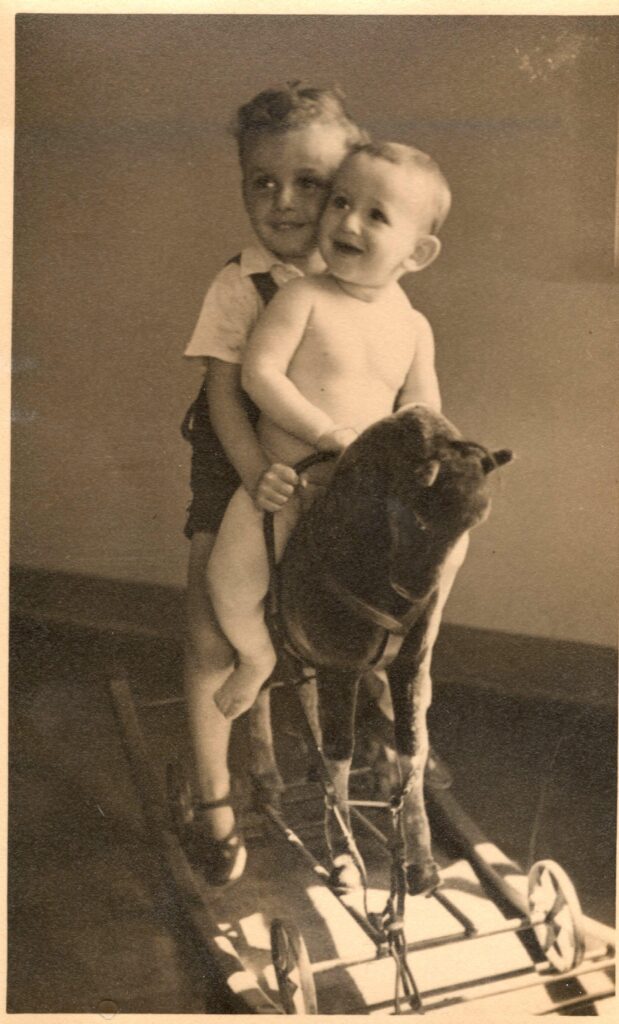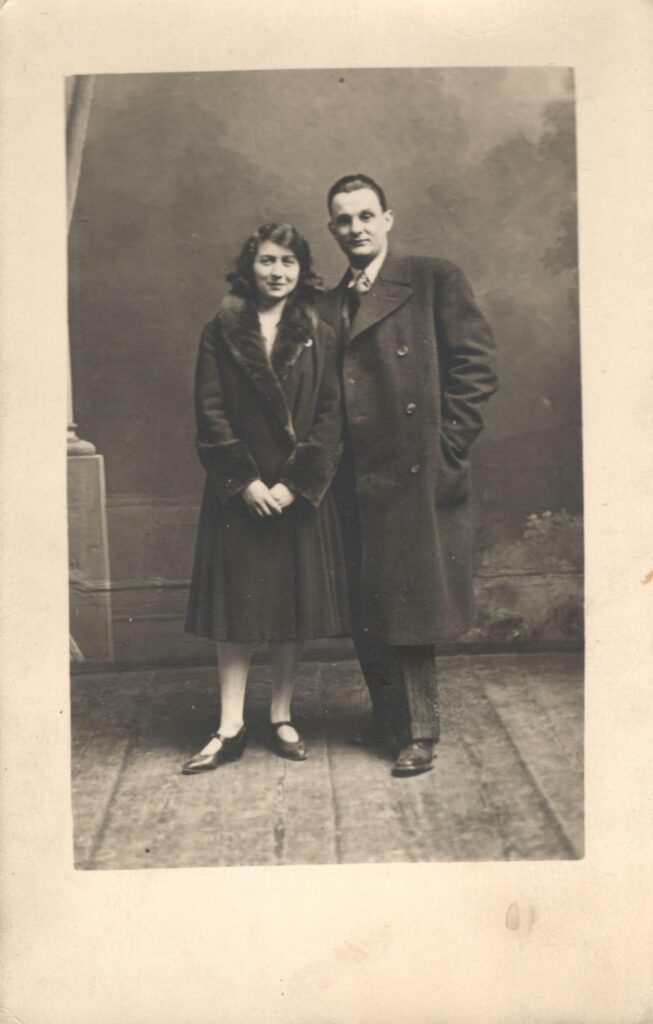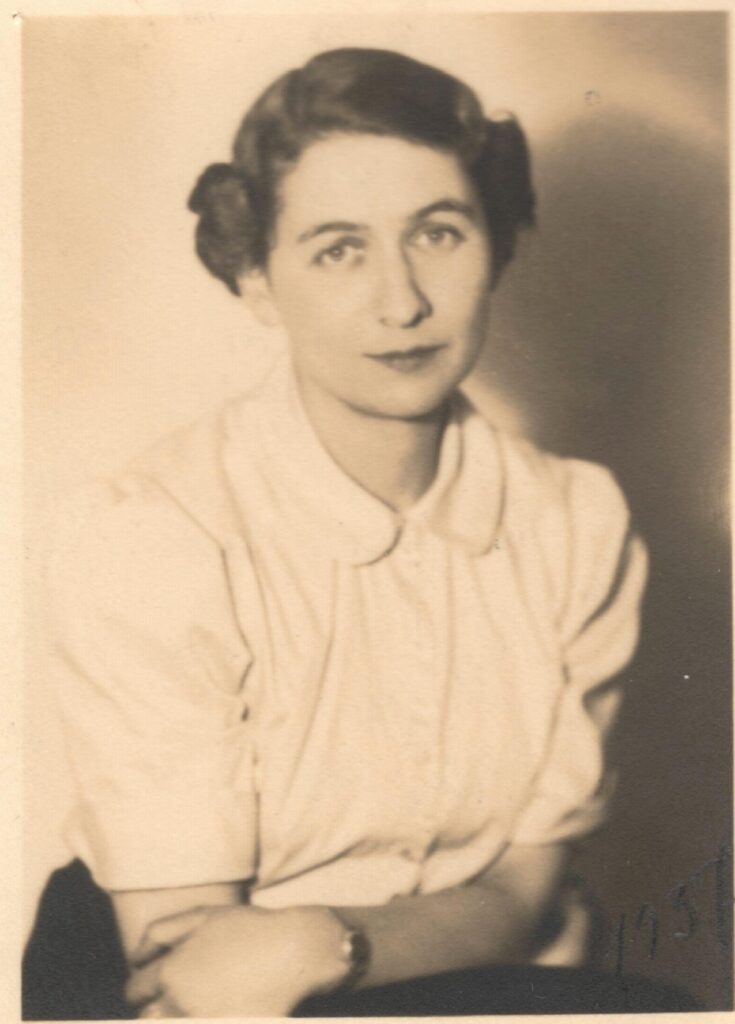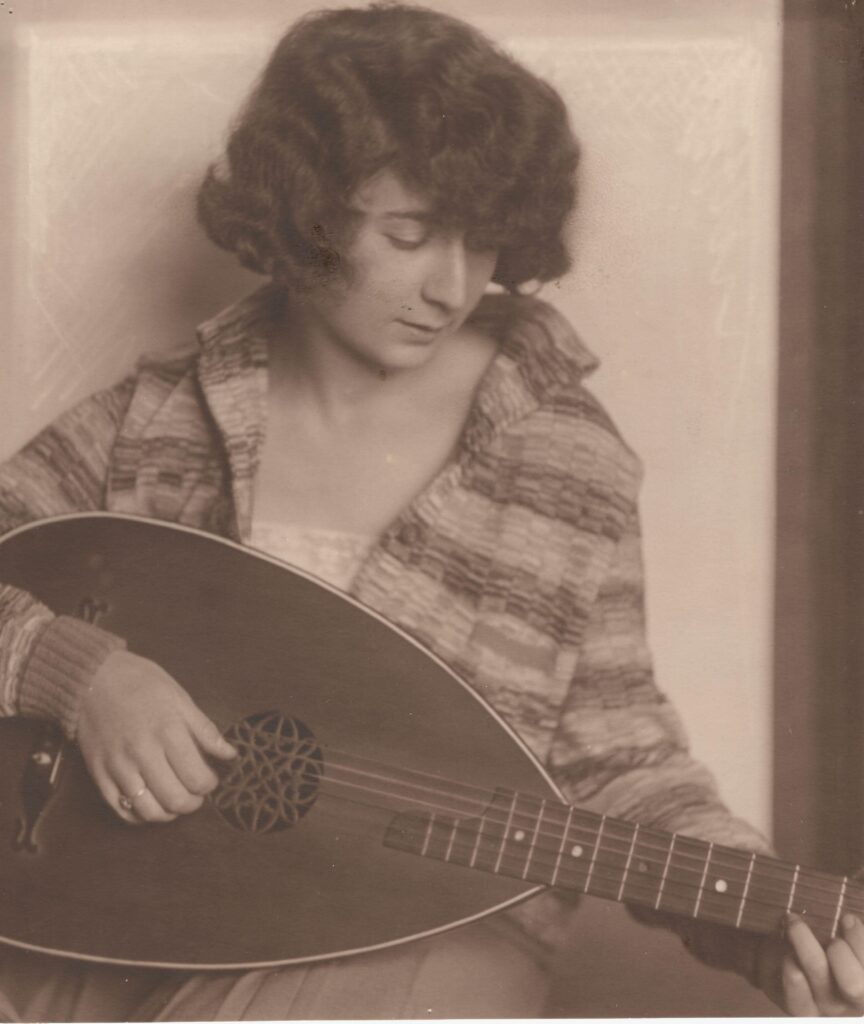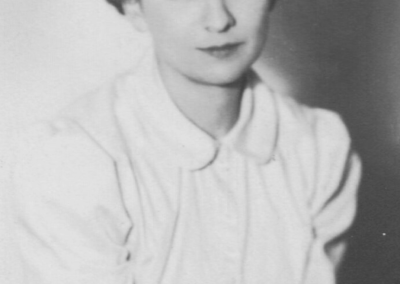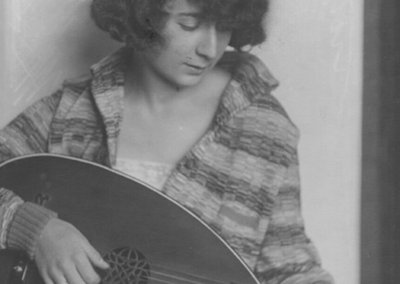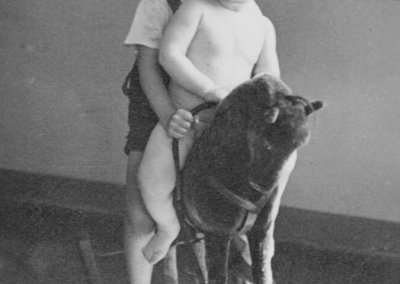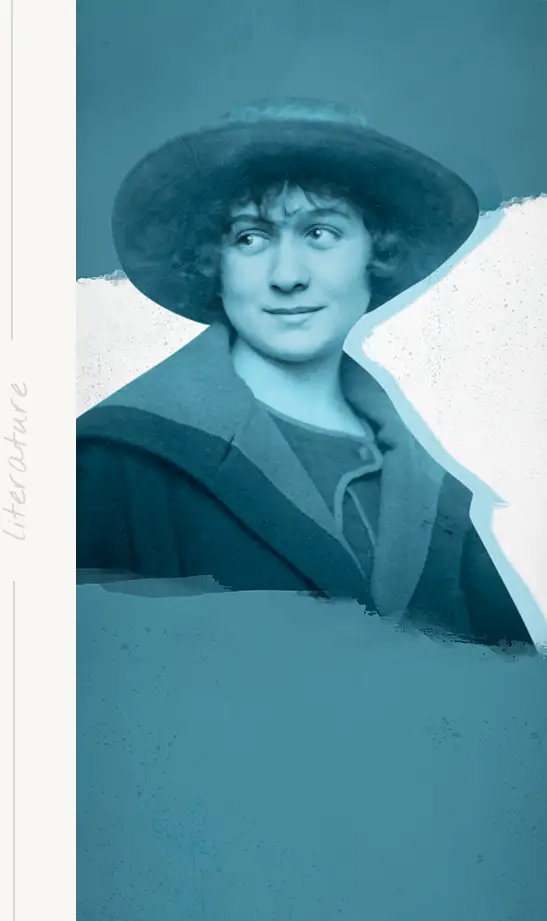
Ilse Weber
11 I 1903, Vítkovice (today’s Czechia) — 6 X 1944, KL Auschwitz-Birkenau
Ilse Weber wrote poems, songs, stories, and radio programs for children in both German and Czech. In the Terezín Ghetto (Theresienstadt), she acted as a nurse, taking care of the many children there. She continued to write poems in the ghetto.
She was born on 11 January 1903 in Witkowice near Ostrava (today’s Czechia) with the surname Herlinger. She began writing at an early age and created short stories for children which quickly made her popular. In 1930, she married Willi Weber and moved to Prague, where she worked for Czech Radio, while her writings were published in children’s magazines. In her works, she tried to combine elements of all the cultures that were close to her heart, namely Jewish, Czech, and German.
In 1939, during the Nazi occupation, she managed to send her older son, Hanuš, to England as part of the children rescue known as Kindertransport (German for “child transport”). He was later sent to Sweden, where he was in the safekeeping of a friend. In February 1942, Ilse Weber, her husband Willi, and their youngest son, Tommy, were relocated to Theresienstadt. Here she worked as a nurse in the children’s hospital. During her stay in the ghetto, she wrote many poems in German, setting some to music. Two of those compositions have been preserved to this day.
In October 1944, her husband was deported to the Auschwitz-Birkenau camp. Wanting to reunite the family, Ilse and Tommy volunteered to join him. After arriving at the camp, they were sent directly to the gas chamber. Willi Weber survived the camp and died 30 years later. Hanuš Weber survived the war and continued living in Sweden. He died in September 2021. Ilse Weber’s work was forgotten for many years. Its value, however, was recognized by Bente Kahan, the curator of this exhibition, Unfinished Lives. With the full support of Hanuš Weber, she undertook to develop Ilse Weber’s story and poetry in her art.
creativity
creativity
Letter to My Son
Performed by Bente Kahan
English translation by David Keir Wright
Music: Bente Kahan and Dariusz Świnoga
My dear child three years have passed today
Alone you left for a world so far away
I can see you in the station there in Prague
By the open window we say goodbye
Your brown and curly head is leaning through
You cry and beg “please let me stay with you,
Please let me stay at home with you.”
To say farewell was hard for you to take
You were so little, frail and only eight
And when we had to walk home without you
I felt my heart would break in two
I’ve cried so much and wished that we were near
Still I’m happy that you are not here
I’m happy – you are not here.
An unknown woman took you as her son
She will go to heaven for what she has done.
I bless her with every breath I take
Be good and love her for my sake.
Life here is dismal now and full of fear
They took all that we owned and had so dear
Our house and home, everything is gone.
They plundered us and nothing’s left alone.
They took your train set and without remorse
Even your brother’s little rocking-horse
Even you brother’s rocking-horse.
We couldn’t keep our names, they stripped us bare
And gave us numbers round our necks to wear.
Marked like cattle, I’d bare the disgrace
If your father could live with me in this place.
Your brother cannot even stay with me
I am as lonely as one ever can be
I am as lonely, as one can be.
You’re still too little to grasp what it means
We carry the pain of loneliness in tears
Body against body in one room
Lying together in sorrow and gloom.
Are you healthy and learning well my dear?
Now no one sings you lullaby’s, I fear.
At night you’re there before my eyes
And once again I feel you at my side.
Think, when we meet again someday
You will be wondering what I say
You have probably forgotten all your German
And Swedish is too hard for me to learn
Wouldn’t that be strange? It would be fun.
All at once to have a grown up son.
Do you like to play with tin soldiers today
A real barracks is the place where I must stay.
With cold, dreary rooms and dark, damaged walls
No sun, no trees, no leaves at all.
I work here as a children’s nurse
Comforting and helping so they don’t feel worse.
I keep guard and watch them through the night
The room has just one lamp, I feeble light.
I sit in silence and protect their sleep
And every child is you, whom I can’t keep
So many thoughts and dreams that we were near
Still I’m happy that you are not here.
I’m happy – you are not here.
A thousand torments I could still endure
If a happy childhood is for you ensured
Now I must get some rest, it’s getting late
I wish that I could see you for one moment.
But dearest son, I can only write to you
Letters of longing that will not get through.
Bente Kahan presents Ilse Weber
Bente Kahan presents three songs by Ilse Weber written in the Theresienstadt getto.
Lyrics: Ilse Weber
Music and vocals: Bente Kahan
Arrangement and guitar: Ronen Nissan
Violin: Małgorzata Wasiucionek, Malwina Kotz
Viola: Marzena Malinowska
Cello: Jan Skopowski
Double bass: Mirosław Mały
Songs:
1. Die Kartoffelschälerin („The Potato Peeler”)
2. Ein Koffer spricht („The Talking Suitcase”)
3. Polentransport
Recording from the „Unfinished Lives” concert at the White Stork Synagogue in Wroclaw in September 2019
The Talking Suitcase
English translation by David Keir Wright
I am a little suitcase from Frankfurt am Main
I’m looking for my master, he is so hard to find.
He is wearing a star, he’s old and cannot see
He held me like a child and caressed me tenderly
I’ve travelled with my master, all over, through the years
But the journey here will be our last, I fear
What have they done with him, he’s old and cannot see
Oh why have they taken my dear friend away from me
Why do I have to stand here, on the barracks square
His name is neatly written on everything I wear
My lock, it is now broken, my body is unclean
They’ve plundered me by force, there’s nearly nothing left in me
Braille boards made of lead, a little scarf so thin
And a cup for water, that all belong to him
Everything is taken, bread and medicine
I’m sure he misses me and maybe suffering
To find me in this suitcase pile is difficult for him
He’s unsteady on his legs and doesn’t see a thing
Why do we have to suffer? Is it for someone’s sake?
To die without a reason, is very hard to take.
I am a little suitcase from Frankfurt am Main
I’m looking for my master, he is so hard to find.

